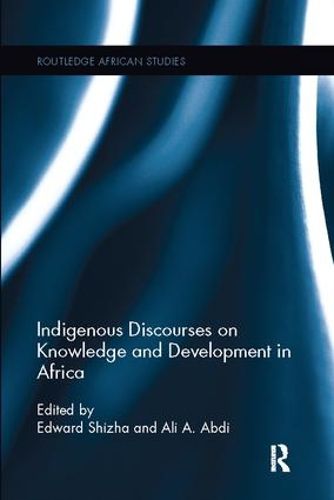Readings Newsletter
Become a Readings Member to make your shopping experience even easier.
Sign in or sign up for free!
You’re not far away from qualifying for FREE standard shipping within Australia
You’ve qualified for FREE standard shipping within Australia
The cart is loading…






African social development is often explained from outsider perspectives that are mainly European and Euro-American, leaving African indigenous discourses and ways of knowing and doing absent from discussions and debates on knowledge and development. This book is intended to present Africanist indigenous voices in current debates on economic, educational, political and social development in Africa. The authors and contributors to the volume present bold and timely ideas and scholarship for defining Africa through its challenges, possible policy formations, planning and implementation at the local, regional, and national levels. The book also reveals insightful examinations of the hype, the myths and the realities of many topics of concern with respect to dominant development discourses, and challenges the misconceptions and misrepresentations of indigenous perspectives on knowledge productions and overall social well-being or lack thereof. The volume brings together researchers who are concerned with comparative education, international development, and African development, research and practice in particular. Policy makers, institutional planners, education specialists, governmental and non-governmental managers and the wider public should all benefit from the contents and analyses of this book.
$9.00 standard shipping within Australia
FREE standard shipping within Australia for orders over $100.00
Express & International shipping calculated at checkout
African social development is often explained from outsider perspectives that are mainly European and Euro-American, leaving African indigenous discourses and ways of knowing and doing absent from discussions and debates on knowledge and development. This book is intended to present Africanist indigenous voices in current debates on economic, educational, political and social development in Africa. The authors and contributors to the volume present bold and timely ideas and scholarship for defining Africa through its challenges, possible policy formations, planning and implementation at the local, regional, and national levels. The book also reveals insightful examinations of the hype, the myths and the realities of many topics of concern with respect to dominant development discourses, and challenges the misconceptions and misrepresentations of indigenous perspectives on knowledge productions and overall social well-being or lack thereof. The volume brings together researchers who are concerned with comparative education, international development, and African development, research and practice in particular. Policy makers, institutional planners, education specialists, governmental and non-governmental managers and the wider public should all benefit from the contents and analyses of this book.